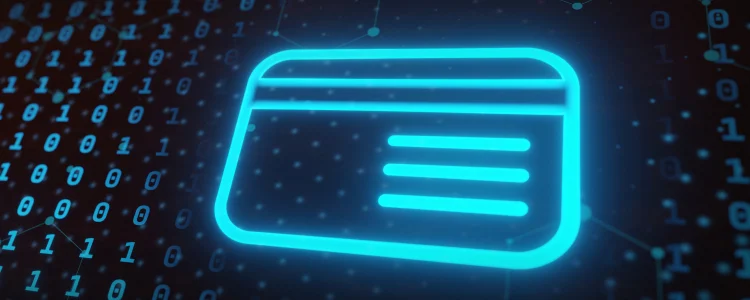What is PCI (Payment Card Industry) Data Security Compliance?

PCI DSS compliance stands for Payment Card Industry Data Security Standards Compliance, and it is mandated by credit card companies to help ensure the security of credit card transactions. The PCI Security Standards Council regulates HSM and other security parameters.
When it comes to a payment environment, this community is in charge of the security parameters and developing, managing, and regulating the necessary security measures for the payment industry. Data encryption and decryption must also adhere to the secure algorithm types and their recommended frequency.
Like financial institutions, ServerMania’s security system check is one of the most reliable methods to remain PCI compliant. Our network security is locked down on multiple logical layers using various methods, including private networking. Our security team monitors and maintains your systems and accounts for potential data breaches and vulnerabilities 24/7/365. We’ve been in the hosting business for over 20 years now, so if you need to ensure your servers are PCI compliant, get in touch with us today.

Compliance by the numbers
Did you know that 80% of businesses are still not PCI DSS compliant? For businesses that pass the compliance security check, only 29% are still fully compliant less than one year after being certified.
65% of companies in the US have experienced a data breach at some point.
Over 19,000 data breaches have occurred since 2009, compromising over 1.5 billion customer details.
These figures are up-to-date according to The Privacy Rights Clearinghouse, which has been reporting on consumer data breaches and security breaches since 2005. Data breaches cost money, and the average cost of data breaches is about $150 million.
Did you know that there are 6 major objectives, 12 key PCI DSS requirements, 78 base requirements, and over 400 test procedures to achieve and maintain PCI DSS Compliance?
What are the 12 key PCI DSS requirements?
PCI compliance includes specific requirements in each of the 6 major PCI DSS objectives. Organizations that want secure systems to be PCI DSS-compliant must meet these 12 requirements:
- Protect environments housing cardholder data by installing and regularly updating a firewall.
- Avoid using the default passwords and other security settings provided by vendors.
- Protect stored cardholder data.
- Securely encrypt any card information that is sent via unsecured open or public networks.
- Antivirus software should be used and updated often.
- Create and support apps and systems that are secure.
- Restrict access to cardholder data to employees with a business need because their jobs require access.
- Assign unique IDs to access cardholder’s data
- Restrict physical access to protect cardholder data.
- Track and monitor all access to network resources and cardholder data.
- Regularly test security systems and processes.
- Keep an information security policy to protect sensitive data.

Levels of PCI DSS Compliance
There are four levels of PCI compliance. Knowing the PCI compliance standards for your level and knowing which of the four levels you fit into is essential for compliance. There are over 300 security controls and regulations; you are responsible for choosing which ones are relevant to your company. To make sure that all businesses that use credit cards are safe, the PCI standards and compliance requirements are put in place by the consortium of key credit card processing firms. These organizations include Visa, Mastercard, American Express, JCB, and Discover.
- PCI Level 1: Businesses processing over 6 million transactions per year.
- PCI Level 2: Businesses processing 1 million to 6 million transactions per year.
- PCI Level 3: Businesses processing 20,000 to 1 million transactions per year.
- PCI Level 4: Businesses processing less than 20,000 transactions per year.
Read More: What Is PCI-Compliant Hosting and Does Your Business Need PCI Compliant Servers?
PCI compliant server hosting solutions are the best way to keep fintech solutions from potential card industry data security issues. To help online merchants follow the guidelines mandated by credit card issuers in the Payment Card Industry Data Security Standard (PCI DSS), one option is to use PCI-compliant hosting. With strong security measures in place, a PCI-compliant hosting environment ensures that critical payment and cardholder information remains private during transactions.
ServerMania is famous for its secure network design, data encryption, its strong access control measures for system and management, and frequent security testing according to the requirements for PCI DSS hosting. To prevent data breaches, fraud, and penalties, it is crucial to trust a company like ours to maintain secure systems that handle such data to maintain PCI compliance. Assuring consumers that their payment information is handled with the utmost security measures fosters confidence in online purchases.
Who Needs To Be PCI Complaint and Why?
A company must be PCI compliant if it handles, saves, or transmits credit card information. That includes any business that holds credit card data or processes payments, regardless of whether they accept credit cards or not.
Your business may need to become PCI compliant even if it doesn’t take credit cards directly. This is particularly true if you’re doing in-person, phone-based product sales or website product sales like the TikTok Shop or even dropshipping using websites like Shopify and Woo-commerce and taking payments online using a third service provider like Stripe or PayPal.
PCI Compliance vs. HIPAA Compliance
PCI and HIPAA compliance are not the same, despite popular belief. These two laws cover distinct topics and demand different compliance.
When you think about it, their aims are comparable. Both are meant to secure personal and corporate data from illegal computer access. However, PCI and HIPAA compliance vary significantly.
Companies that take credit and debit cards must comply with the Payment Card Industry Data Security Standard (PCI Compliance). Visa and MasterCard developed it to protect consumer cards and other sensitive data. Companies that store cardholder data must also disclose security breaches and manage consumer fraud complaints under the standard.
However, the US Congress approved HIPAA in 1996. This preserves a patient’s privacy by mandating medical providers to secure PHI. This includes names, Social Security Numbers, addresses, date of birth, phone numbers—anything that identifies a person as part of a healthcare plan or insurance policy.

Benefits of PCI DSS compliance
PCI DSS (Payment Card Industry Data Security Standard) compliance is crucial for organizations that handle credit card transactions. Achieving and maintaining compliance with PCI DSS offers several benefits, including:
1. Data Security: PCI DSS is designed to protect sensitive cardholder data. By complying with the standard, organizations implement security measures that help safeguard customer information, reducing the risk of data breaches and unauthorized access.
2. Customer Trust: Consumers are increasingly concerned about the security of their financial information. Demonstrating PCI DSS compliance reassures customers that their credit card details are being handled securely, which can enhance trust and loyalty.
3. Legal Compliance: Many countries have enacted data protection laws that address information security, and organizations that handle payment card information are often subject to specific regulations. PCI DSS compliance helps organizations meet legal requirements related to payment card data security, reducing the risk of legal consequences and fines.
4. Brand Reputation: A data breach can severely damage a company’s reputation. Compliance with PCI DSS demonstrates a commitment to security, and a strong security posture can positively impact a brand’s image.
5. Risk Mitigation: PCI DSS provides a framework for identifying and addressing security vulnerabilities. By implementing the standard’s requirements, organizations can proactively reduce the risk of security incidents and protect against potential threats.

PCI DSS challenges
While achieving and maintaining PCI DSS compliance offers numerous benefits, organizations often face several challenges in the process of becoming compliant. Some of the common challenges include:
1. Complexity of Requirements: PCI DSS has a set of comprehensive and detailed security requirements. Understanding and implementing these requirements can be complex, especially for organizations with diverse IT environments, multiple systems, and various stakeholders.
2. Scope Management: Determining the scope of PCI DSS compliance within an organization can be challenging. Identifying all systems and processes that handle cardholder data and ensuring they are properly secured can be complex.
3. Cost of Compliance: Implementing the necessary security measures to meet PCI DSS requirements can be expensive. This includes investments in technology, staff training, security assessments, and ongoing monitoring. Small and medium-sized businesses, in particular, may find it challenging to allocate resources for compliance.
4. Integration with Existing Systems: Some organizations struggle to integrate PCI DSS compliance measures into their IT infrastructure seamlessly. Legacy systems or third-party applications may not easily align with the security controls required by the standard.
5. Constantly Evolving Threat Landscape: The cybersecurity threat landscape is dynamic, with new threats and attack vectors emerging regularly. Staying ahead of potential risks and adapting security measures to address new challenges requires ongoing vigilance and investment.
6. Regular Audits and Assessments: PCI DSS compliance is not a one-time effort; it requires regular assessments and audits. Some organizations may find it challenging to allocate the necessary resources and time for these recurring activities.
Consequence Posed by PCI Non-Compliance
Exposure and Data Breach
Non-compliant organizations may face penalties for poor payment security and likely get fined by the government for data breaches.
PCI-compliant merchants need to use firewalls, data encryption, safe storage, antivirus software, run periodic security scans, and more to comply with PCI DSS. These standards safeguard organizations’ and customers’ sensitive data and credit card information against fraud and breaches.
Failure to comply with PCI DSS might increase exposure to cyberattacks on sensitive data, including credit card information, names, addresses, security codes, etc.
Legal Consequences
As a result of being PCI non-compliant, you stand at risk of getting legal action from customers and businesses. These lawsuits usually result from stealing or compromising sensitive data. Customers sometimes take legal action against merchants for carelessness and damages.
In addition to class-action lawsuits, corporations may have to pay card providers fees and damages for reissuing credit cards and compensating fraud victims. Card issuers may sue merchants who violate PCI requirements.
Loss of Revenue
PCI Non-Compliance may lead to income loss from data breaches, legal issues, and client loss. Merchants might lose income owing to PCI DSS penalties, data breach litigation, card brand limitations, and customers leaving due to security concerns and compromised card data.
Bottom Line
While following the PCI DSS guidelines is an important first step, it is insufficient to safeguard your company. The Payment Card Industry Data Security Standard (PCI DSS) does provide fundamental guidelines for the safe use and storage of cardholder data.
Still, it is not an ideal solution covering all payment environments. You need a ServerMania security measure to keep you 100% safe. We proactively monitor our servers to ensure they stay compliant and are shielded from data breaches of all kinds.
To learn more about our PCI DSS compliance services and how ServerMania can help maintain access to your critical keys and strengthen security from data breaches, book a free consultation with us today!
Was this page helpful?

